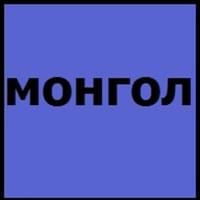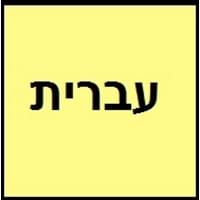Countries
China, Mongolia
Israel
National Language
China, Mongolia
Israel
Second Language
Not spoken in any of the countries
Israel
Speaking Continents
Asia
Africa, Asia, Europe
Minority Language
Not spoken in any of the countries
Poland
Regulated By
Council for Language and Literature Work, State Language Council (Mongolia)
Academy of the Hebrew Language
Interesting Facts
- Mongolian was first written using Phagspa script in late 13th century.
- There is no connection between Mongolian, Japanese and Korean, but still in terms of grammar and sentence structure they are very similar.
- The original language of Bible is Hebrew.
- The men and women use different verbs in hebrew language.
Similar To
Turkish Language
Arabic and Aramaic languages
Derived From
Not Available
Aramaic Language
Alphabets in
Mongolian-Alphabets.jpg#200
Hebrew-Alphabets.jpg#200
Scripts
Mongolian alphabets: Traditional Mongolian script
Hebrew
Writing Direction
Not Available
Right-To-Left, Horizontal
Hello
Сайн уу (Sain uu)
שלום (Shalom)
Thank You
та бүхэнд баярлалаа (ta bükhend bayarlalaa)
תודה (Toda)
How Are You?
Юу байна? (Yuu baina?)
מה שלומך? (ma shlomxa)
Good Night
Сайн шөнийн (Sain shöniin)
לילה טוב (Laila tov)
Good Evening
Сайн үдэш (Sain üdesh)
ערב טוב (Erev tov)
Good Afternoon
Сайн Үдээс хойш (Sain Üdees khoish)
אחר צהריים טובים (Achar tzahara'im tovim)
Good Morning
Өглөөний мэнд (Öglöönii mend)
בוקר טוב (Boker tov)
Please
Хэрэв (Kherev)
בבקשה (bevekshah)
Sorry
Уучлаарай (Uuchlaarai)
סליחה! (Slicha)
Bye
Баяртай (Bayartai)
להתראות (Lehitraot)
I Love You
Би чамд хайртай (Bi chamd khairtai)
אני אוהבת אותך (Ani ohevet otcha)
Excuse Me
Өршөөгөөрэй (Örshöögöörei)
בבקשה!
Dialect 1
Khalkha Mongolian
Ashkenazi Hebrew
Where They Speak
Mongolia
Israel
Dialect 2
Ordos Mongolian
Samaritan Hebrew
Where They Speak
Mongolia
Israel, Palestine
How Many People Speak
Not Available
Dialect 3
Khorchin Mongolian
Yemenite Hebrew
Where They Speak
Mongolia
Israel
Speaking Population
Not Available
Not Available
Second Language Speakers
Not Available
Native Name
монгол (mongol) монгол хэл (mongol hêl)
עברית / עִבְרִית (ivrit)
Alternative Names
Not Available
Israeli, Ivrit
French Name
mongol
hébreu
German Name
Mongolisch
Hebräisch
Pronunciation
/mɔŋɢɔ̆ɮ xiɮ/
[(ʔ)ivˈʁit] - [(ʔ)ivˈɾit]
Ethnicity
Not Available
Not Available
Language Family
Mongolic family
Afro-Asiatic Family
Subgroup
Mongolian
Semitic
Branch
Not Available
Canaanitic
Early Forms
Middle Mongolian, Classical Mongolian, Mongolian
Biblical Hebrew, Mishnaic Hebrew, Medieval Hebrew, Hebrew
Standard Forms
Khalkha, Southern Mongolian
Modern Hebrew
Language Position
Not Available
Signed Forms
Mongolian Sign Language
Signed Hebrew
Scope
Macrolanguage
Individual
ISO 639 6
Not Available
Not Available
Glottocode
mong1331
hebr1246
Linguasphere
part of 44-BAA-b
12-AAB-a
Language Type
Living
Living
Language Linguistic Typology
Subject-Object-Verb
Subject-Verb-Object, Verb-Subject-Object
Language Morphological Typology
Not Available
Fusional, Synthetic
Mongolian and Hebrew Greetings
People around the world use different languages to interact with each other. Even if we cannot communicate fluently in any language, it will always be beneficial to know about some of the common greetings or phrases from that language. This is where Mongolian and Hebrew greetings helps you to understand basic phrases in Mongolian and Hebrew language. Mongolian word for "Hello" is Сайн уу (Sain uu) or Hebrew word for "Thank You" is תודה (Toda). Find more of such common Mongolian Greetings and Hebrew Greetings. These greetings will help you to be more confident when conversing with natives that speak these languages.
Mongolian vs Hebrew Difficulty
The Mongolian vs Hebrew difficulty level basically depends on the number of Mongolian Alphabets and Hebrew Alphabets. Also the number of vowels and consonants in the language plays an important role in deciding the difficulty level of that language. The important points to be considered when we compare Mongolian and Hebrew are the origin, speaking countries, language family, different greetings, speaking population of these languages. Want to know in Mongolian and Hebrew, which language is harder to learn? Time required to learn Mongolian is 44 weeks while to learn Hebrew time required is 44 weeks.





